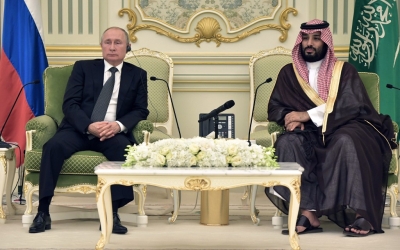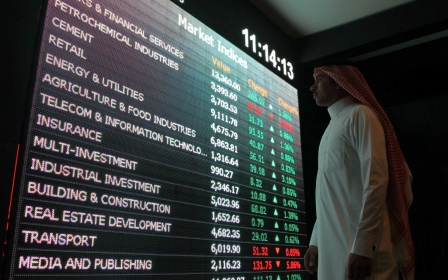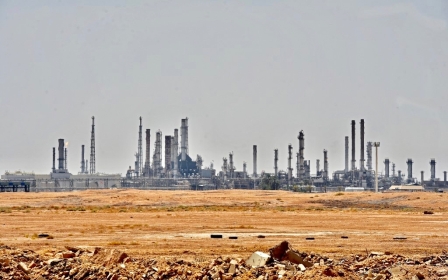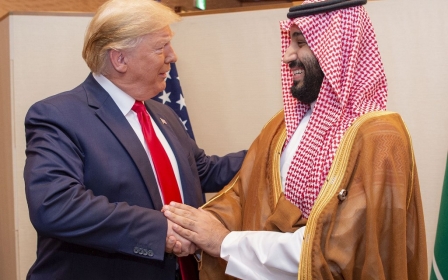Kuwait backs Saudi call for talks on cutting oil output
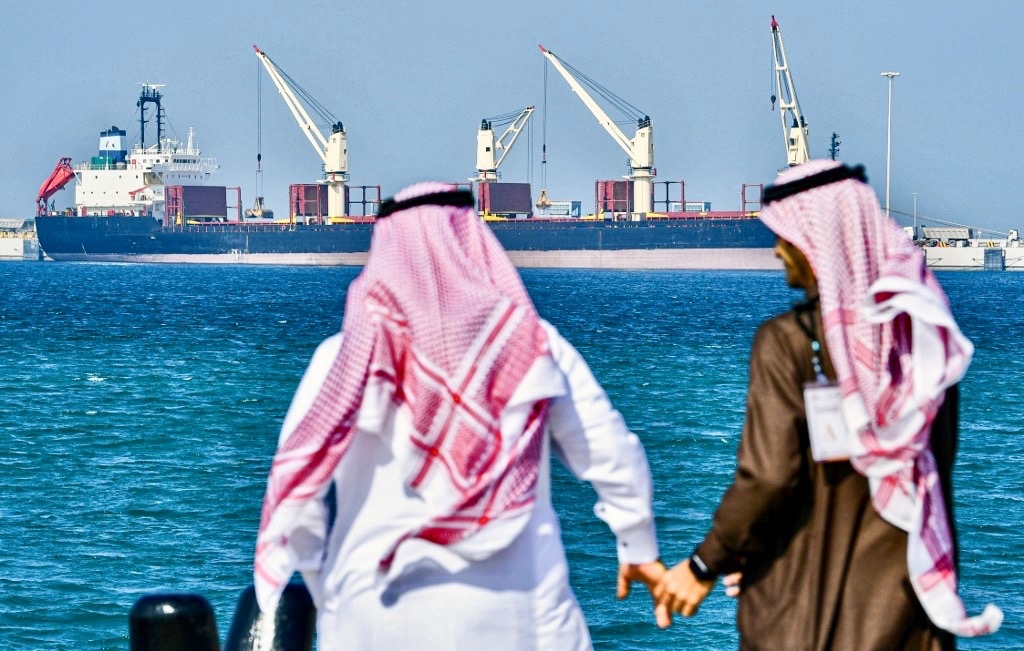
Kuwait supports Saudi Arabia's call to renew talks on cutting oil production due later this week and hopes for a successful outcome to stabilise the oil market, Kuwait's oil minister said on Sunday.
Opec and allies led by Russia, a group known as Opec+, are due to hold a meeting on Thursday to discuss a new pact on curbing output and ending a price war between Saudi Arabia and Russia that has prompted US President Donald Trump to weigh in. The meeting had been set for Monday, but was postponed.
"We totally support Saudi Arabia... and its current efforts in bringing Opec and non-Opec countries back to the table," Khaled al-Fadhel told Reuters by telephone.
Brent oil futures on 30 March fell to an almost 18-year low and remain down more than 50 percent from January levels amid low demand caused by the global coronavirus pandemic and the dispute between Saudi Arabia and Russia as they vie for market share amid increased production.
On Monday, oil prices fell sharply after the meeting to discuss output cuts was delayed from Monday to Thursday, dimming hopes of swift action to support coronavirus-ravaged energy markets, AFP said. US benchmark West Texas Intermediate was down 7.8 percent at the open in Asia, trading at $26.11 per barrel. International benchmark Brent fell 6.2 percent to trade at $31.98 per barrel.
New MEE newsletter: Jerusalem Dispatch
Sign up to get the latest insights and analysis on Israel-Palestine, alongside Turkey Unpacked and other MEE newsletters
Russia wants constructive talks on the situation in the oil market and sees no alternative to dialogue, the Interfax news agency cited Kremlin spokesman Dmitry Peskov as saying on Sunday.
Opec+ members are debating a global production pact to cut 10 million barrels per day (bpd) or about 10 percent of total supply, an Opec source told Reuters on Friday.
A cut that size would be unprecedented and would require a widening of Opec+ to bring in other major players, including the United States, according to OPEC sources and analysts.
Still, Trump said on Saturday that he would impose tariffs on crude imports if he has to "protect" US energy workers from the oil price crash that has been exacerbated by the price war between Russia and Saudi Arabia over market share.
"If I have to do tariffs on oil coming from outside or if I have to do something to protect our ... tens of thousands of energy workers and our great companies that produce all these jobs, I'll do whatever I have to do," Trump told reporters during a briefing about the coronavirus outbreak.
Russia and Saudi Arabia want the US to join in the talks, but Trump has so far shown little willingness to do so.
Unidentified diplomats told Bloomberg News that Saudi Arabia, Russia and other big producers that are racing to negotiate a deal had made some progress on Sunday.
Saudi Arabia and Russia both say they want the US, which has become the world’s biggest producer thanks to the shale revolution, to join the cuts, but Trump had only hostile words for Opec on Saturday when he threatened tariffs on foreign oil.
“I've been against Opec my whole life,” Trump said, adding that he believed Saudi Arabia and Russia would end their price war soon, according to the Financial Times. “I think they're going to settle because they'll be destroying themselves if they don't.”
The US is not part of Opec+, and the idea of Washington curbing production has long been seen as impossible, not least because of US antitrust laws.
“If the Americans don’t take part, the problem that existed before for the Russians and Saudis will remain - that they cut output while the US ramps it up, and that makes the whole thing impossible,” said Fyodor Lukyanov, head of the Council on Foreign and Defence Policy, a research group that advises the Kremlin.
Saudi Aramco will delay the release of its May crude official selling prices until 10 April to wait for the outcome of the Opec+ meeting, a senior Saudi source familiar with the matter said on Sunday.
Al-Fadhel said Kuwait would also delay the release of its May crude pricing until after the talks.
Kuwait will commit to the outcome of the Opec+ meeting and adjust its production and export plans according to any agreement that is reached, al-Fadhel said.
Middle East Eye delivers independent and unrivalled coverage and analysis of the Middle East, North Africa and beyond. To learn more about republishing this content and the associated fees, please fill out this form. More about MEE can be found here.


